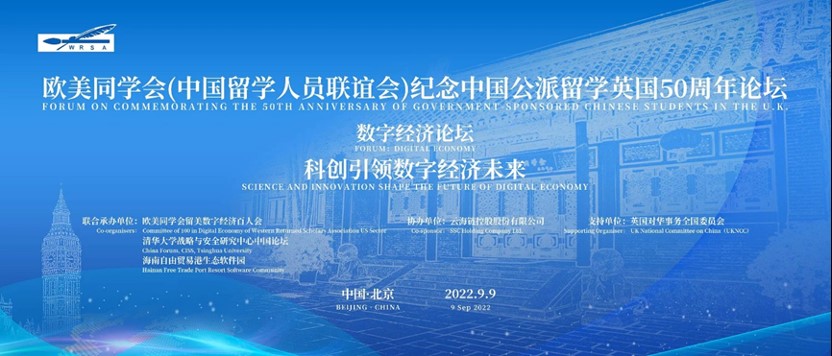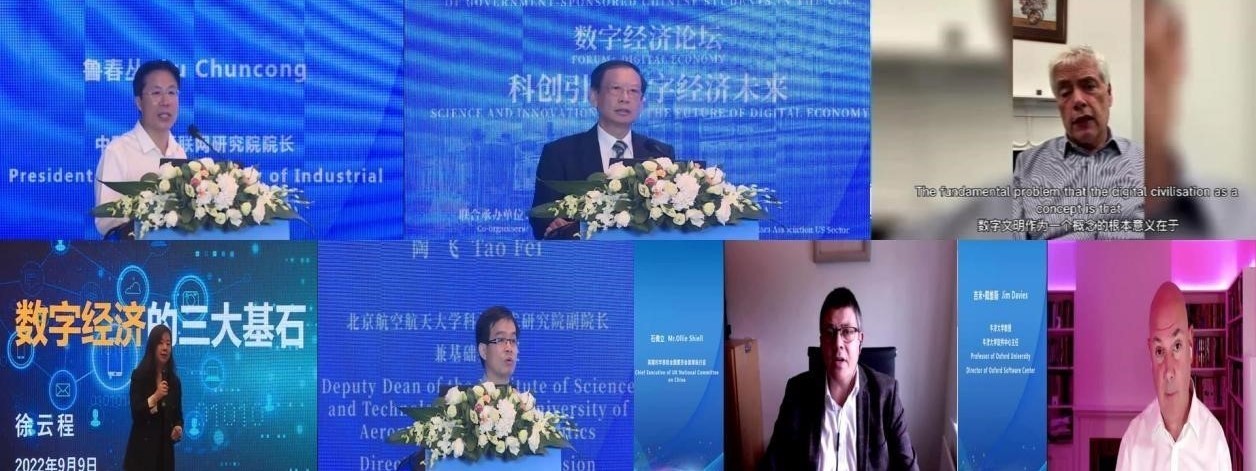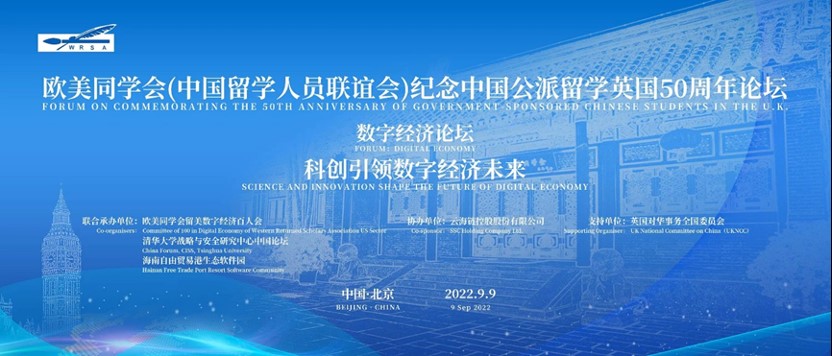On September 9, the Forum on Commemorating the 50th Anniversary of Government Sponsored Chinese Students in the UK of the Western Returned Scholars Association (WRSA) was held in both in-person & online formats, convening more than 200 government officials, scholars, scientists, entrepreneurs & financial professionals from China & the UK. Themed “Creating a New Chapter in China-UK Cooperation on Education, Science & Technology in the New Era,” the forum aimed to build a platform for communication & cooperation between China & the UK on education, technology & finance.

A sub-forum titled “Science & Innovation Shape the Future of Digital Economy” was co-hosted by China Forum of Tsinghua University’ Center for International Security & Strategy, WRSA US Chamber’s Committee of 100 in Digital Economy, & the Hainan Free Trade Port Resort Software Community. Moderated by Zhang Lirong, secretary general of China Forum, the event featured Lu Chuncong, president of the China Academy of Industrial Internet; Bill Roscoe, fellow at the Royal Academy of Engineering; Xu Yuncheng, deputy director of the Big Data Center of Shanghai Services Federation; Ollie Shiell, CEO of the UK National Committee on China (UKNCC); Tao Fei, vice dean of the Institute of Science & Technology, Beihang University; & Jim Davies, professor of software engineering at Oxford University.

(Top row from left: Lu Chuncong, Zhang Lirong, Bill Roscoe; Bottom row from left: Xu Yuncheng, Tao Fei, Ollie Shiell, Jim Davies)
In his remarks, Zhang Lirong said that the digital economy has become the most significant growth pole & is changing the way the global economy grows. We all need to think hard about how to achieve technological & social advances through the development of the digital economy, he noted.
Lu Chuncong spoke on the theme of “Promoting the development of industrial Internet & creating new dynamics for the digital economy.” He believes that the industrial Internet is the key driver of the fourth Industrial Revolution & will provide fresh momentum for the real economy of China, the world’s largest digital market.
Bill Roscoe focused his speech on international cooperation, blockchain & “digital civilization.” Global cooperation is all the more important now as it has been undermined by the p&emic & the international situation, he said, adding that to build a rational & feasible digital world, countries need to rethink privacy, power, social consensus, laws & regulations, & international cooperation.
Xu Yuncheng turned to the success paradigms, opportunities & challenges in the era of digital economy. The future value creation of the digital economy will be built on three elements: scenarios, data & compliance, she said.
Ollie Shiell noted that Chinese & UK businesses would benefit more from greater underst&ing of the policies & technical aspects of digital economy cooperation & development.
Tao Fei explored the meaning of digital economy, the current state of industry development & research, & the digital twin. Digital industrialization & industry digitization are the core of the digital economy, he pointed out.
Professor Jim Davies believes that more tools, technologies & mechanisms are needed to help us build trust in the digital economy in order to create new drivers of economic dynamism.
At the main forum, UKNCC Chairman Frank Slevin delivered a keynote speech on the referral of China Forum, in which he encouraged extensive exchanges & deeper underst&ing between Chinese & British students as well as stronger cooperation between the two countries on education, technology & finance.

